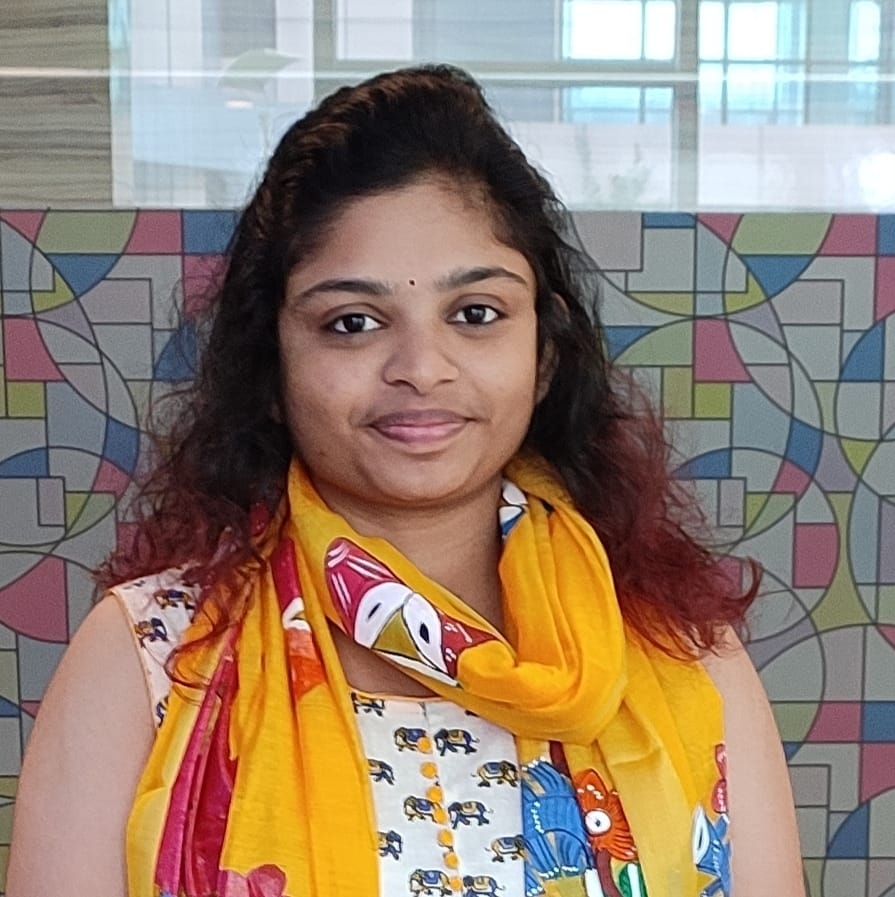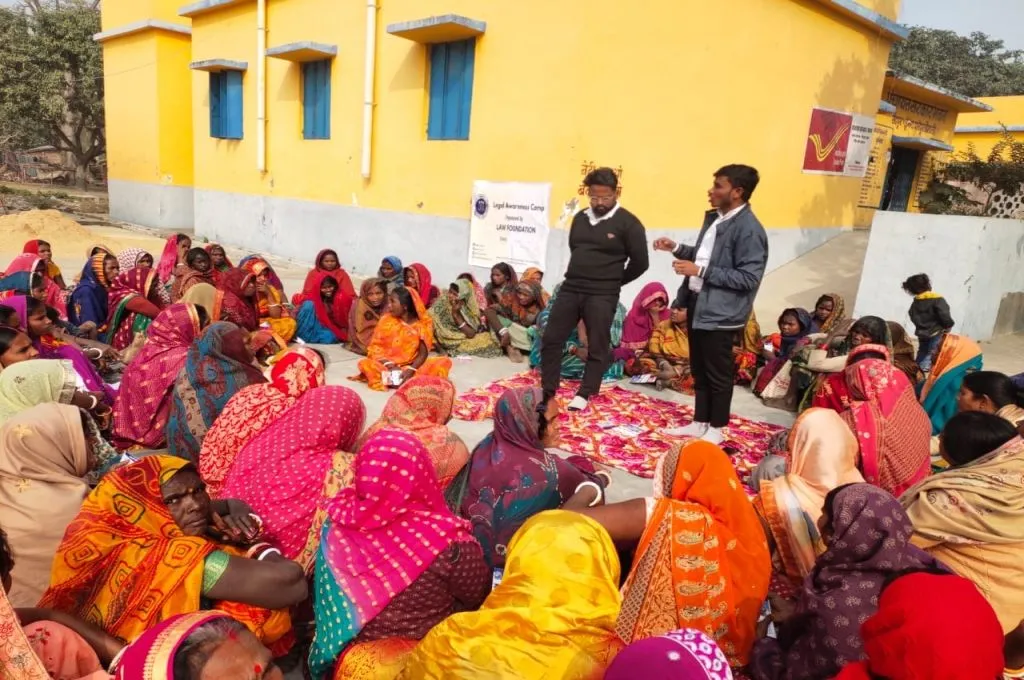Trauma often has lasting effects, impacting a person’s life as well as identity. For survivors of trafficking and forced exploitation, the path to recovery from the immense trauma they endured is fraught with challenges, including psychological distress, societal stigma, and the constant struggle to rebuild trust and reclaim a sense of normalcy. However, dealing with such highly challenging life situations can also result in a positive and meaningful development known as post-traumatic growth.
Changes due to post-traumatic growth can manifest as personal strength, discovery of new possibilities, appreciation of life, improved relationships, and spiritual and existential growth. Experiencing trauma deepens empathy and compassion, fuelling determination and passion for change. As Firoja Khatun, a survivor leader, reflects, “The traumatic incident, turning around from there, and not wanting others to be in that place of hurt—this journey stays with us.”
The cognitive process of grappling with existential questions, interpreting the trauma, finding meaning in suffering, and the creation of emotional and social support structures during recovery supports the emergence of post-traumatic growth. In order to understand the role and impact of survivor leadership in fostering such growth, Kamonohashi Project—an organisation that supports the leadership development of survivors of human trafficking—collaborated with ChangeMantras to conduct a monitoring study in October 2024.
The study involved 60 survivors from five survivor collectives in West Bengal, Chhattisgarh, and Andhra Pradesh. The participants have been working on developing their leadership capacities since 2018 as part of the Leadership Next programme. The findings revealed that 98 percent of the respondents reported experiencing moderate to high levels of post-traumatic growth.
Based on the study, we detail how leadership fosters post-traumatic growth, the challenges faced by the survivors in this process, and the steps that organisations can take to maximise their impact in nurturing survivor leadership, sustaining growth, and enabling systemic and community-driven changes.
A holistic approach
Post-traumatic growth is a long journey. Many survivors continue to seek external validation, struggle with sustained motivation, and face interpersonal challenges. These issues may stem from deep-seated trauma and unhealed emotional wounds. A stronger focus on goal- or action-driven mentorship often leads to limited attention to internal and collective healing and growth. This highlights the need for a holistic approach in leadership development—one that integrates internal and external growth at the self, collective, community, and systemic levels, while also being goal-driven.
A holistic approach includes continued emotional guidance and trauma-informed support using interventions essential for healing and growth. The programme should help survivors rebuild their self-worth and support them in fostering healthy relationships through conflict resolution and trust-building. Nonprofits should support their relational and collective growth, strengthening leadership at all levels. Here’s how they can do so.

1. Ask survivors what they wish to do
The design of the leadership programme should prioritise the survivors’ voice by asking, “What do you want to do?” This simple yet profound question becomes a catalyst for self-determination, which is critical for leadership development. It encourages survivors to articulate their goals and aspirations and take charge of their actions and futures. It shifts the narrative from passive compliance to active decision-making, instilling self-belief and agency. Additionally, it builds a foundation of trust and respect between mentors and survivors, emphasising collaboration and autonomy as essential elements of both personal and collective progress.
Survivors experience a shift from self-doubt and guilt to becoming confident individuals with improved self-efficacy, resilience to confront challenges, and a sense of control over their lives. According to the study, 58 percent of the participants reported a substantial shift in personal strength, transcending trauma to achieve a positive self-perception. This transformation has also inspired others and changed the community’s attitude from stigma to respect and admiration.
2. Embrace the potential of mentorship
Mentorship plays a critical role in leadership development. Specialised training for mentors is crucial to effectively supporting survivors. Trauma-informed care, mentorship and coaching skills, self-care strategies, and secondary trauma prevention should be key components of this training.
It is also essential for mentors to gain psychological first aid and crisis intervention skills to respond to victims’ immediate needs. This needs to be facilitated by experienced trainers with expertise in trauma-informed care and mentorship. This approach ensures that mentors are equipped with the tools to provide compassionate, effective support while also safeguarding their own well-being. Mentors can foster post traumatic growth in the following ways.
As re-integrators: Mentors help survivors reconnect with families, communities, and support networks, providing a foundation for emotional recovery and rebuilding trust. They also serve as a safe space where survivors feel validated. Piu Mondal, a survivor leader, states, “The mentoring nonprofit showed me the way forward, talked to my family, and gave me hope. My mentor said, ‘Yes, something bad has happened. But I want you to meet some people—just talk to them or listen.’ I felt someone believed in me. That was the first step of my growth, and it helped me build my strength. As I regained my internal resilience, the various training sessions became another phase of my growth, teaching me how to love myself again and strengthening me further.”
As trainers: Mentors equip survivors with essential knowledge and skills in areas such as advocacy, legal rights, public speaking, and leadership. This enables survivors to gain confidence and navigate their environments with a sense of purpose. The training provided by mentors also imparts necessary life skills such as financial literacy, conflict resolution, mental health support, and communication, all of which contribute to the survivors’ personal growth and the rebuilding of their identities.
As facilitators: Mentors encourage survivors to embark on self-reflection and personal discovery, guiding them through a process of introspection that helps them engage with their feelings, in addition to discovering and leveraging their potential.
3. Create survivor collectives
Collectives are a safe haven for survivors where they can share their stories and cultivate solidarity, mutual respect, and understanding. By witnessing the growth and progress of their peers, survivors often find motivation to pursue their own goals and focus on their growth. It also encourages healthy competition, strengthening the collective’s overall impact.
Building peer groups and collectives for survivors requires a thoughtful and structured approach. Such spaces should be accessible and inclusive, where cultural sensitivity is prioritised and individuals feel supported. Trust is foundational and can be built through open communication, active listening, and empathy. To encourage shared responsibility and empowerment, facilitators should define the collective’s purpose/goals, as well as a leadership structure. Celebrating successes and continuously evaluating progress ascertains that the collective remains aligned with its mission.
To ensure sustainability, the collective must plan strategically, build partnerships, and prioritise self-care, enabling survivors to thrive both individually and as part of the group. The alignment of personal and collective goals can help foster action against issues like domestic violence, child marriage, child labour, trafficking, and stigma. Survivors can advocate for systemic reforms, such as comprehensive anti-trafficking laws, community-based rehabilitation with mental health prioritisation, and effective functioning of anti-human trafficking units.
The Integrated Leaders Forum Against Trafficking (ILFAT), a national federation, is an example of such a collective. It represents more than 3,000 survivors across seven states in India who engage with the policy and media space at the national level.
4. Adopt varied mentorship approaches
The study found that collectives that were provided facilitative mentorship, which emphasises introspection, reflection, and a connection to personal feelings, experienced profound interpersonal growth. Experiential methods such as theatre, art, simulations, and storytelling also promote personal growth among survivors. These approaches provide a safe and creative outlet for expressing and processing emotions. By engaging in these methods, survivors can reclaim their narrative, reframe past experiences, and achieve greater emotional regulation and resilience. This process helps survivors develop empathy, self-awareness, and self-acceptance, which are fundamental to building confidence and self-esteem.
For instance, 70 percent of survivors in one such collective reported high levels of appreciation of life, supported with greater autonomy and financial independence. Survivor leader Roshnara Khatun reflects, “In our society, a woman’s community is often decided by others—first her parents’ house, then her husband or in-laws’ house, and later her son’s house when she’s old. But I chose my own community where I intend to live. I saved money, bought land, and build my life. This is how I progress through my leadership.”
To effectively scale and sustain transformative impact, it is essential for organisations to move forward with an integrated approach. Continued monitoring and research are essential to understanding the nuances of survivors’ growth journeys and improving programmes designed for them. By consistently investing in leadership development for survivors, we can ensure that they not only heal but also emerge as leaders who guide their communities towards a future where empowerment, resilience, and justice are the status quo.
—






